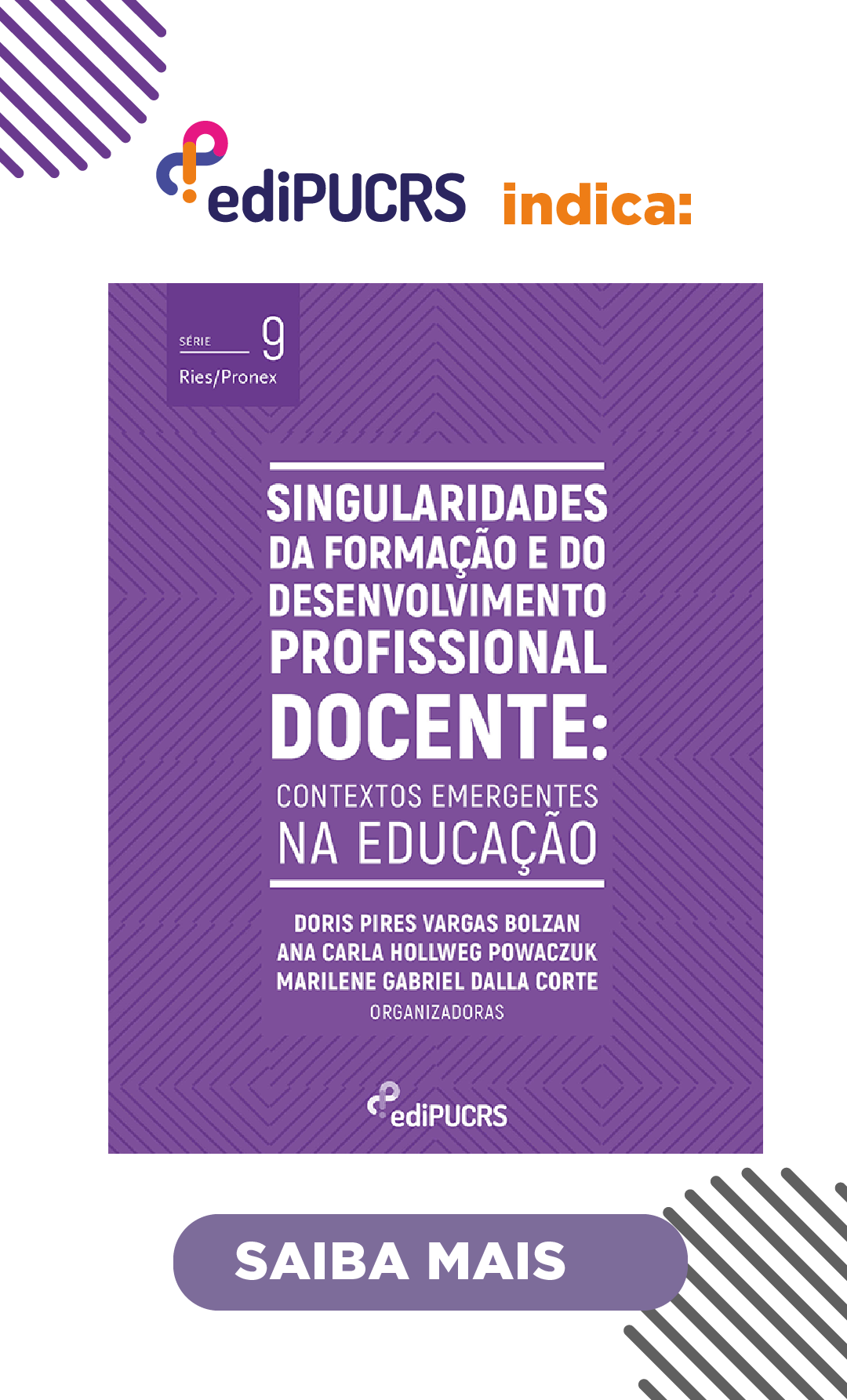Otherness, ethnic and gender diversity in the (trans)formation of Law operators and juridical culture
DOI:
https://doi.org/10.15448/2179-8435.2019.2.36672Keywords:
Gender diversity. Otherness ethics. Academic training. Juridical culture.Abstract
The present article brings to the debate the importance of issues inherent to gender diversities being contemplated in the training of Law operators. We start from the confirmation of the exhausting of the juridical culture centered on adversarial values and practices, of maximizing individualistic gain and dehumanization of social-political relations. The study adds to the understanding that different knowledges are related to different customs, behaviors and praxis. Thus, transformations in the matrix of knowledges that form citizens have the potential to produce transformations in social relationships. An interdisciplinary theoretical referential, with contributions from Social Sciences, Law, Education and Philosophy, is adopted, in order to evaluate the inclusion of themes related to gender diversities as mandatory in pedagogical projects and syllabi of Law graduation courses in Porto Alegre, RS and its region, according to the current Human Rights Education policy. The concepts of conflict, politics, ethinic and otherness, in Jacques Rancière, liberalism, political rationality, transversal fights and knowledge-and-power in Michel Foucault are highlighted, to sustain the necessary transformation of the juridical culture and academic training. The individual potential is affirmed not as a good per se, but in order to promote the integration from the differences and plurality, an ethical criterion pervaded by otherness and human integrity.
Downloads
References
ALMEIDA, Frederico de Almeida; CAMARGO, Sarah Bria de; SOUZA, André Lucas Delgado. O Direito e a Realidade: desafios para o ensino jurídico. In: GHIRARDI, José Garcez; FEFERBAUM, Marina (org.). Ensino do direito em debate: reflexões a partir do 1º Seminário Ensino Jurídico e Formação Docente. São Paulo: Direito GV, 2013. (Série Pesquisa Direito GV). Disponível em: http://bibliotecadigital.fgv.br/dspace/bitstream/handle/10438/11274/Ensino%20do%20 direito%20em%20debate.pdf?sequence=1. Acesso em: 20 maio 2017. https://doi.org/10.12660/rda.v261.2012.8861
BARBOSA, Águida Arruda. Mediação: Educar para Mediar. Revista Científica Virtual da Escolha Superior de Advocacia, [s. l.], n. 23, p. 33-43, 2016. ISSN 2175-4462. Disponível em: https://www.esaoabsp.edu.br/ckfinder/userfiles/files/RevistaVirtual/Revista%20Cienti%CC%81fic a%20ESAOABSP%20Ed%2023.pdf. Acesso em: 10 out. 2016.
BONELLI, Maria da Gloria. Docência do Direito: fragmentação institucional, gênero e interseccionalidade. Cadernos de Pesquisa, [s. l.], v. 47, n. 163, p. 94-120, jan./mar. 2017. https://doi.org/10.1590/198053143659
BRAY, Renato Toller; GONZALEZ, Everaldo T. Quilici. Teoria Crítica no Direito e Pluralismo Jurídico: novos paradigmas éticos para o modelo jurídico nacional. Rev. de Direito da Unimep, [s. l.], v. 6, n. 11, p. 9-21, 2006. Disponível em: https://www.metodista.br/revistas/revistas-unimep/index.php/cd/article/view/645/214. Acesso em: 25 set. 2016. https://doi.org/10.15600/2238-1228/cd.v6n11p9-21
CARIELLO, Bruno; CARIELLO, Bruno; PEDRETE, Leonardo. Sociologia do direito: velhos e novos caminhos. Revista Habitus, Rio de Janeiro, v. 2, n. 1, p. 30-48, 30 mar. 2004. Disponível em: http://www.habitus.ifcs.ufrj.br/. Acesso em: 25 set. 2016.
https://doi.org/10.34024/pensata.2018.v7.10104
CHERON, Cibele. Ética, autocomposição e empoderamento: um olhar sobre o manejo dos conflitos a partir de referencial endógeno. In: JORNADA DE MEDIAÇÃO DO TRIBUNAL DE JUSTIÇA DO RIO GRANDE DO SUL, 3., 2014, Porto Alegre. A mediação como marco transformador do Poder Judiciário. Anais [...]. Porto Alegre: NUPEMEC, 2014. https://doi.org/10.26668/indexlawjournals/2525-9679/2016.v2i2.1569
CUNHA, Djason B. Della Cunha. Pluralismo Jurídico e a ética do direito à alteridade. Revista do Instituto Brasileiro de Direitos Humanos, [s. l.], v. 2, n. 2, p. 73-83, 2001. Disponível em: http://www.corteidh.or.cr/tablas/r26066.pdf. Acesso em: 20 maio 2017.
FREIRE, Paulo. Pedagogia do Oprimido. Rio de Janeiro: Paz e Terra, 2013.
GAJARDONI, Fernando Fonseca. Novo CPC: vale apostar na conciliação/mediação? Jota Info, opinião e análise, 26 jan. 2015. Disponível em: http://jota.info/novo-cpc-vale-apostar-na-conciliacaomediacao. Acesso: 10 out. 2016.
GAIO JÚNIOR, Antônio Pereira; RIBEIRO, Wesllay Carlos. O Ensino Jurídico e os meios não contenciosos de solução de conflitos. R. Jurídica, Curitiba, n. 24, p. 13-25, 2010. Disponível em: http://www.gaiojr.adv.br/astherlab/uploads/arquivos/artigos/O_ENSINO_JURIDICO_E_OS_MEIOS_NAO_CONTENCIOSOS_DE_SOLUCAO_DE_CONFLITOS.pdf. Acesso em: 15 nov. 2016.
LEAL, Jackson da Silva; FAGUNDES, Lucas Machado. Pluralismo Jurídico e Justiça Comunitária na América Latina: potencialidades a partir da Sociologia das Ausências e das Emergências. Crítica Jurídica: Revista Latinoamericana de Política, Filosofía y Derecho, [s. l.], n. 35, p. 165-195, 2013. Disponível em: http://www.revistas.unam.mx/index.php/rcj/article/view/40804/37133. Acesso em: 29 ago. 2016. https://doi.org/10.22201/ceichc.2013.40804
MILANI, Feizi M. JESUS, Rita de Cássia Dias P. (org.). Cultura de paz: estratégias, mapas e bússolas. Salvador: Edições INPAZ, 2003.
MIRANDA, José Valdinei Albuquerque de. Levinas e a reconstrução da subjetividade ética aproximações com o campo da educação. Rev. Bras. Educ., [s. l.], v. 19, n. 57, p. 461-475, 2014. ISSN 1413-2478. Disponível em: http://dx.doi.org/10.1590/S1413-24782014000200010. Acesso em: 20 out. 2016.
PEREIRA, Clovis Brasil. Conciliação e Mediação no Novo CPC. [S. l.: s. n.]: 2015. Disponível em: http://www.conima.org.br/arquivos/4682. Acesso em: 02 out. 2016.
ROSA, Conrado Paulino da. Desatando nós e criando laços: os novos desafios da mediação familiar. Belo Horizonte: Del Rey, 2012.
SANTOS, Boaventura de Souza. Pela mão de Alice: o social e o político na pós-modernidade. 7. ed. Porto: Edições Afrontamento, 1994; São Paulo: Cortez, 1999.
SIDEKUM, Antônio. Emmanuel Levinas: educação e interpelação ética. Revista da FAEEBA – Educação e Contemporaneidade, Salvador, v. 39, p. 85-94. Disponível em: https://www.revistas.uneb.br/index.php/faeeba/article/view/328/278. Acesso em: 20 maio 2017. https://doi.org/10.21879/faeeba2358-0194.v22.n39.328
SILVA, Érica Barbosa e. Profissionalização de Conciliadores e Mediadores. Revista Científica Virtual da Escolha Superior de Advocacia, ed. 23, p. 64-75, 2016, ISSN 2175-4462. Disponível em: https://www.esaoabsp.edu.br/ckfinder/userfiles/files/RevistaVirtual/Revista%20Cienti%CC%81fic a%20ESAOABSP%20Ed%2023.pdf. Acesso em: 10 out. 2016.
WOLKMER, Antonio Carlos. Pluralismo Jurídico: fundamentos de uma nova cultura no direito. 3. ed. São Paulo: Alfa Ômega, 2001.
Downloads
Published
How to Cite
Issue
Section
License
Copyright (c) 2020 Educação Por Escrito

This work is licensed under a Creative Commons Attribution 4.0 International License.
Copyright
The submission of originals to Educação Por Escrito implies the transfer by the authors of the right for publication. Authors retain copyright and grant the journal right of first publication. If the authors wish to include the same data into another publication, they must cite Educação Por Escrito as the site of original publication.
Creative Commons License
Except where otherwise specified, material published in this journal is licensed under a Creative Commons Attribution 4.0 International license, which allows unrestricted use, distribution and reproduction in any medium, provided the original publication is correctly cited.





